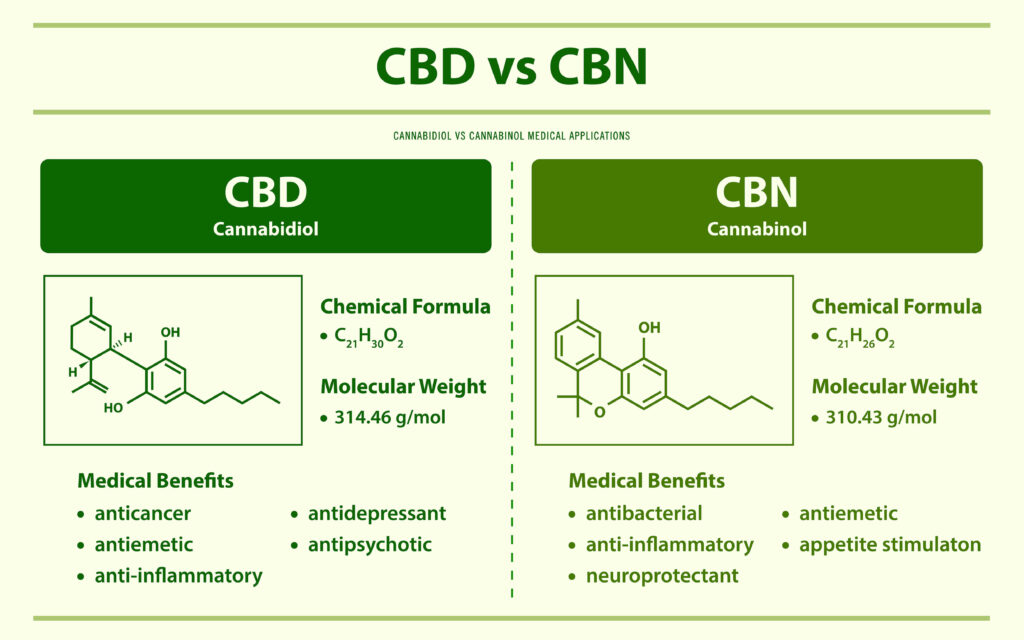CBN vs CBD
CBD, or cannabidiol, and CBN, or cannabinol, are both compounds found in the cannabis plant. They are both considered non-psychoactive, meaning they do not produce the “high” commonly associated with THC, the primary psychoactive compound in cannabis.
CBD is the most well-known and widely researched of the non-psychoactive cannabinoids. It is known for its potential therapeutic properties, including reducing anxiety and inflammation, and has been used in a wide range of products including oils, tinctures, capsules, and topicals.
CBN, on the other hand, is a less well-known cannabinoid that is thought to have sedative properties. It is formed from the degradation of THC and is typically found in older or improperly stored cannabis plants. While research on CBN is still in its early stages, some studies have suggested it may have potential therapeutic benefits such as reducing pain and inflammation, and promoting sleep.
It’s important to note that CBD and CBN interact differently with the body’s endocannabinoid system and will have different effects on the body. While CBD is known for its calming properties, CBN is known for its sedative effects. Additionally, CBD products are widely available, but CBN products are not as widely available.
In summary, CBD and CBN are both non-psychoactive compounds found in cannabis, but they have different properties and potential therapeutic benefits. CBD is more well-known and widely available, while CBN is still being studied for its potential benefits.

